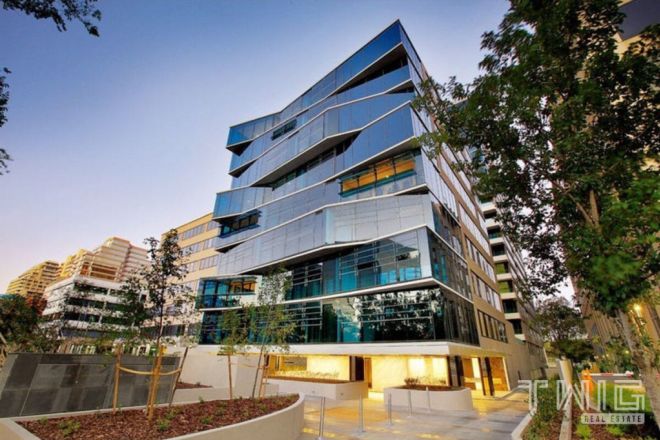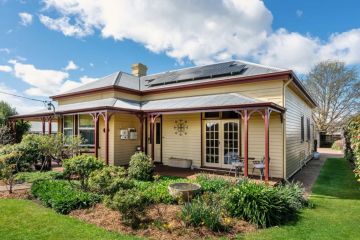New listings across Australia climb to new heights
Property hunters hoping to make a purchase are in luck as recent data revealed a rise in new listings in October, leaving buyers with more choices ahead of the holiday season.
Across the combined capitals, new listings surged to a 17-month high in October after experiencing a dip in September, according to Domain data.
New listings increased in every capital city but Darwin. It is the largest number of new listings in four years in Canberra, 19 months in Melbourne, 11 months in Adelaide, and seven months in Brisbane, Perth and Hobart.
“What it showcases is that we’re in that peak selling season,” says Domain chief of research and economics Dr Nicola Powell. “We’re getting to that pointy period where the close of the year is edging closer, so it’s put a ticking watch. If you’re going to sell, you really need to list in October and in early November to get that deal done before Christmas.
“It also showcases the persistence in price recovery. We nearly have prices at a record high – anticipating that to be achieved by the end of the year across our combined capitals and in certain cities – and I think it illustrates the confidence that sellers have gained.
“They’re striking while the iron is hot. While selling conditions have improved significantly, they’re timing it.”

In Canberra, new listings were 29.1 per cent higher in October than the year prior – the strongest of any capital market. Melbourne followed suit, where property listings were up 20.1 per cent in the same period.
“Annual stock levels were exponentially higher this time around than last year … we saw about 150 new listings on a Thursday (the day most listings come to market), which we haven’t seen in a couple of years,” says Alexander Smout of Belle Property Canberra.
“I’m not sure whether it’s due to people wanting to realise their capital gain or selling because of high interest rates but I think after some relatively tighter stock years, we have a more transactional approach with buyers and sellers now.”
Melbourne agent Annamaria Stella of Twig Real Estate says the new listings are a welcome surprise after a few quiet months.
“If people think this is high or wondering what’s happening, listings are just higher than the really low points we’ve had. It’s all quite relative,” she says.
“We had COVID, then after that, there were about six to seven months where people didn’t want to sell, it just wasn’t beneficial for sellers to sell.
“We’re basically at pre-COVID levels but people think it’s high [stock] because they’re comparing it to the last two years of little to no stock.”

Meanwhile, Darwin is bucking the national trend, posting the most significant annual decline of any capital market. Domain data revealed new listings were down 37.4 per cent in October from the year before.
“Listings are down online and there’s a noticeable difference in properties available to purchase in Darwin,” Andrew Harding of Ray White Darwin says.
“Naturally, it’s usually quiet in Darwin this time of the year, so sellers are reluctant to come to market. However, it is a little bit quieter this year than last, but the market’s also changed.
“The tenanted or vacant properties that need maintenance are hard to sell but those that are move-in ready are getting phenomenal results.”
Powell says interest rates have increased this year but have had little impact on distressed sales.
“Sellers are becoming active during a seasonally busy time (spring), motivated by the near-full market recovery, but this could also be a sign that the rapid rate hikes are affecting some households. However, distressed listings are also falling,” she says.
“What that says is that people listing aren’t in that distressed scenario yet but what it might show is that some home owners might be choosing to sell before they get into that scenario.”

Domain data revealed that distressed listings have consistently fallen throughout 2023, with all capital markets seeing fewer distressed sales over the year. Perth hit a record-low in distressed listings in October, and Sydney and Brisbane’s distressed listings are at an 18-month low.
The first to sell in distress are likely investors, Powell adds.
“That extra interest rate hike might weigh on investors more than owner-occupiers. They are much quicker to offload a property than an owner-occupier because, for an owner-occupier, it’s a roof over their head.
“They will sell the shirt off their back, they’ll sell off their grandma, they will do anything to keep the family home.
“I think that the interest rate hike will be a burden for many but I think what we could see is investors choosing to sell off at that rapid rate because of that high cost of mortgage repayment and the long-term impact of that is prolong the undersupply of the rental market for longer.”
We recommend
We thought you might like
States
Capital Cities
Capital Cities - Rentals
Popular Areas
Allhomes
More










